» Edit Band Information
» Edit Albums
» Add a Review
» Add an Album
» Add News | Ludwig van Beethoven
The events of Beethoven's life are the stuff of Romantic legend, evoking images of the solitary creator shaking his fist at Fate and finally overcoming it through a supreme effort of creative will. Born in the small German city of Bonn on or around December 16, 1770, he received his early training from his father and other local musicians. As a teenager, he earned some money as an assistant to his teacher, Christian Gottlob Neefe, then was granted half of his father's salary as court musician from the Electorate of Cologne in order to care for his two younger brothers as his father gave in to ...read more
The events of Beethoven's life are the stuff of Romantic legend, evoking images of the solitary creator shaking his fist at Fate and finally overcoming it through a supreme effort of creative will. Born in the small German city of Bonn on or around December 16, 1770, he received his early training from his father and other local musicians. As a teenager, he earned some money as an assistant to his teacher, Christian Gottlob Neefe, then was granted half of his father's salary as court musician from the Electorate of Cologne in order to care for his two younger brothers as his father gave in to alcoholism. Beethoven played viola in various orchestras, becoming friends with other players such as Antoine Reicha, Nikolaus Simrock, and Franz Ries, and began taking on composition commissions. As a member of the court chapel orchestra, he was able to travel some and meet members of the nobility, one of whom, Count Ferdinand Waldstein, would become a great friend and patron to him. Beethoven moved to Vienna in 1792 to study with Haydn; despite the prickliness of their relationship, Haydn's concise humor helped form Beethoven's style. His subsequent teachers in composition were Johann Georg Albrechtsberger and Antonio Salieri. In 1794, he began his career in earnest as a pianist and composer, taking advantage whenever he could of the patronage of others. Around 1800, Beethoven began to notice his gradually encroaching deafness. His growing despondency only intensified his antisocial tendencies. However, the Symphony No. 3, "Eroica," of 1803 began a sustained period of groundbreaking creative triumph. In later years, Beethoven was plagued by personal difficulties, including a series of failed romances and a nasty custody battle over a nephew, Karl. Yet after a long period of comparative compositional inactivity lasting from about 1811 to 1817, his creative imagination triumphed once again over his troubles. Beethoven's late works, especially the last five of his 16 string quartets and the last four of his 32 piano sonatas, have an ecstatic quality in which many have found a mystical significance. Beethoven died in Vienna on March 26, 1827.Beethoven's epochal career is often divided into early, middle, and late periods, represented, respectively, by works based on Classic-period models, by revolutionary pieces that expanded the vocabulary of music, and by compositions written in a unique, highly personal musical language incorporating elements of contrapuntal and variation writing while approaching large-scale forms with complete freedom. Though certainly subject to debate, these divisions point to the immense depth and multifariousness of Beethoven's creative personality. Beethoven profoundly transformed every genre he touched, and the music of the nineteenth century seems to grow from his compositions as if from a chrysalis. A formidable pianist, he moved the piano sonata from the drawing room to the concert hall with such ambitious and virtuosic middle-period works as the "Waldstein" (No. 21) and "Appassionata" (No. 23) sonatas. His song cycle An die ferne Geliebte of 1816 set the pattern for similar cycles by all the Romantic song composers, from Schubert to Wolf. The Romantic tradition of descriptive or "program" music began with Beethoven's "Pastoral" Symphony No. 6. Even in the second half of the nineteenth century, Beethoven still directly inspired both conservatives (such as Brahms, who, like Beethoven, fundamentally stayed within the confines of Classical form) and radicals (such as Wagner, who viewed the Ninth Symphony as a harbinger of his own vision of a total art work, integrating vocal and instrumental music with the other arts). In many ways revolutionary, Beethoven's music remains universally appealing because of its characteristic humanism and dramatic power. « hide |
Similar Bands: Wolfgang Amadeus Mozart, Franz Schubert, Robert Schumann, Johannes Brahms, Joseph Haydn |
|
| LPs |  | String Quartet No. 16 in F major, Op. 135
1826
|
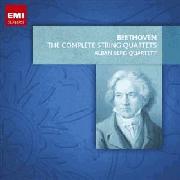 | String Quartet No. 15 in A minor, Op. 132
1825
|
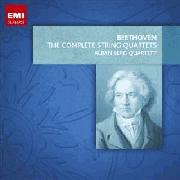 | String Quartet No. 13 in B♭ major, Op. 130
1825
|
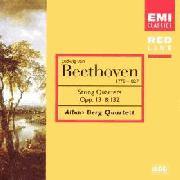 | String Quartet No. 14 in C♯ minor, Op. 131
1825
|
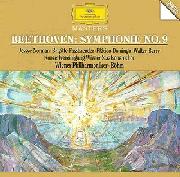 | Symphony No. 9 in D minor, Op. 125
1824
|
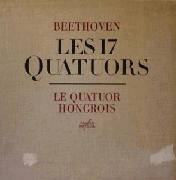 | String Quartet No.12 E-flat Major,Op127
1824
|
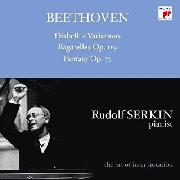 | Variations on a waltz by Anton Diabelli, Op. 120
1823
|
 | Missa solemnis, Op. 123
1823
|
 | Piano Sonata No. 32 in C minor, Op. 111
1822
|
 | Piano Sonata No. 31 in A♭ major, Op. 110
1821
|
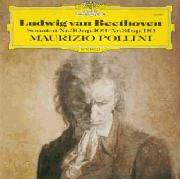 | Piano Sonata No. 30 in E major, Op. 109
1820
|
 | "Hammerklavier" Piano Sonata No. 29 in B♭ major, Op. 106
1818
|
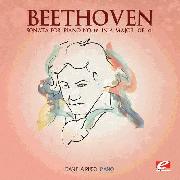 | Piano Sonata No. 28 in A major, Op. 101
1816
|
 | Violin Sonata No. 10, Op. 96
1816
|
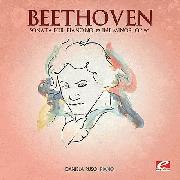 | Piano Sonata No. 27 in E minor, Op. 90
1815
|
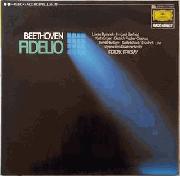 | Fidelio, Op. 72
1814
|
 | Symphony No. 8 in F major, Op. 93
1814
|
 | Symphony No. 7 in A major, Op. 92
1813
|
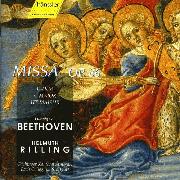 | Mass in C Major, Op. 86
1812
|
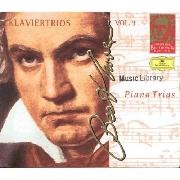 | Piano Trio, Op. 97
1811
|
 | "Serioso" String Quartet No. 11 in F minor, Op. 95
1810
|
 | "Les Adieux" Piano Sonata No. 26 in E♭ major, Op. 81a
1810
|
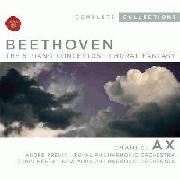 | Piano Concerto No. 5, Op. 73 "Emperor"
1809
|
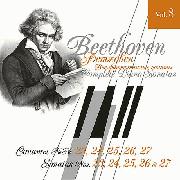 | Piano Sonata No. 24 in F♯ major, Op. 78
1809
|
 | Piano Trios, Op. 70
1809
|
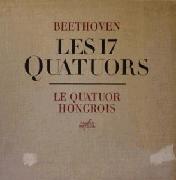 | String Quartet No.10 E-flat Major, Op.74
1809
|
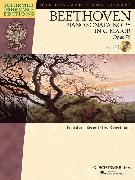 | Piano Sonata No. 25 in G major, Op. 79
1809
|
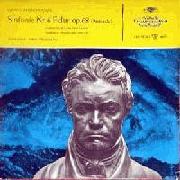 | "Pastoral" Symphony No. 6 in F major, Op. 68
1808
|
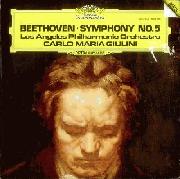 | Symphony No. 5 in C minor, Op. 67
1808
|
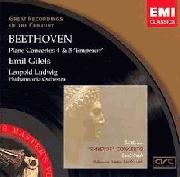 | Piano Concerto No. 4 in G major, Op. 58
1808
|
 | Symphony No. 4 in B♭, Op. 60
1807
|
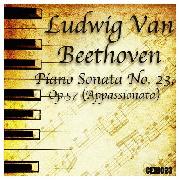 | "Appassionata" Piano Sonata No. 23 in F minor, Op. 57
1807
|
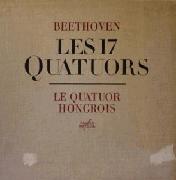 | String Quartet No.8 E Minor, Op.59, No.2
1806
|
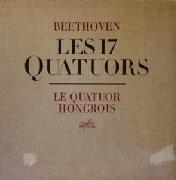 | String Quartet No.7 F Major, Op.59, No.1
1806
|
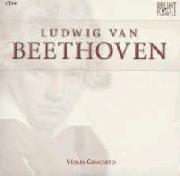 | Violin Concerto in D major, Op. 61
1806
|
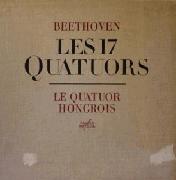 | String Quartet No.9 C major, Op.59, No.3
1806
|
 | Symphony No. 3 in E♭ “Eroica” Op. 55
1805
|
 | Piano Sonata No.19 G Minor, Op.49, No.1
1805
|
 | Piano Sonata No.20 G Major, Op.49, No.2
1805
|
 | Piano Sonata No. 22 in F major, Op. 54
1804
|
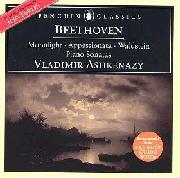 | Piano Sonata No. 21 in C Major, Op. 53
1804
|
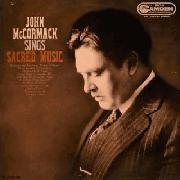 | Christus am Ölberge, Op. 85
1804
|
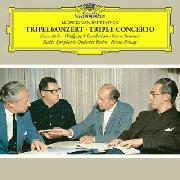 | Triple Concerto in C Major, Op. 56
1804
|
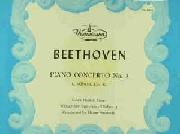 | Piano Concerto No.3 in C Minor, Op.37
1803
|
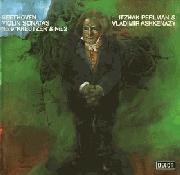 | Violin Sonata No.9 in A major, Op.47
1803
|
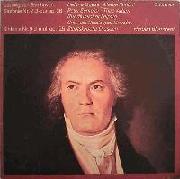 | Symphony No. 2 in D major, Op. 36
1803
|
 | Piano Sonata No. 16 in G Major, Op. 31-No.1
1802
|
 | Violin Sonata No.6-7-8, Op.30 No.1-2-3
1802
|
 | Piano Sonata Nos. 16-18, Op. 31
1802
|
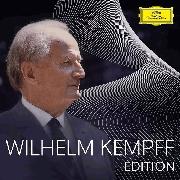 | Piano Sonata No.17 D Minor, Op.31, No.2
1802
|
 | Piano Sonata No18 E-flat Major,Op.31,No3
1802
|
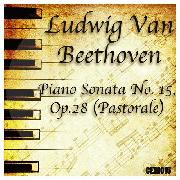 | "Pastorale" Piano Sonata No. 15 in D major, Op. 28
1801
|
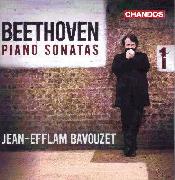 | Piano Sonata No. 13 in E♭ major, Op. 27, No. 1
1801
|
 | Piano Sonata No14 C-sharp minor,Op.27No2
1801
|
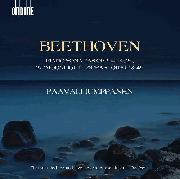 | Piano Sonata No.12 A-flat major, Op.26
1801
|
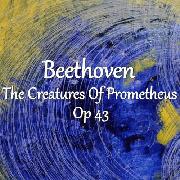 | The Creatures of Prometheus, Op. 43
1801
|
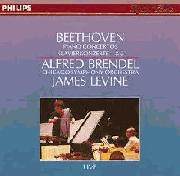 | Piano Concerto No. 2 in B♭ major, Op. 19
1801
|
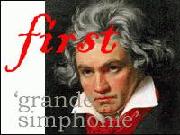 | Symphony No. 1 in C major, Op. 21
1800
|
 | String Quartet No. 6 in B♭ major, Op. 18, No. 6
1800
|
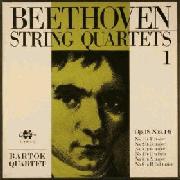 | String Quartet No. 5 in A major, Op. 18, No. 5
1800
|
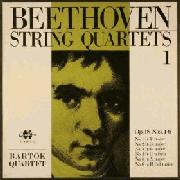 | String Quartet No. 4 in C minor, Op. 18, No. 4
1800
|
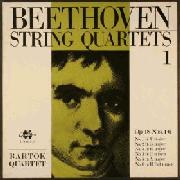 | String Quartet No. 3 in D major, Op. 18, No. 3
1800
|
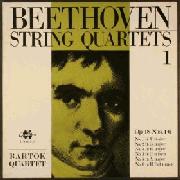 | String Quartet No. 2 in G major, Op. 18, No. 2
1800
|
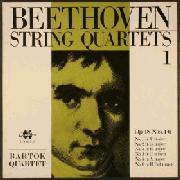 | String Quartet No. 1 in F major, Op. 18, No. 1
1800
|
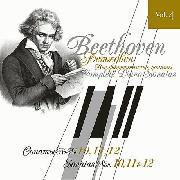 | Piano Sonata No. 11 in B♭ major, Op. 22
1800
|
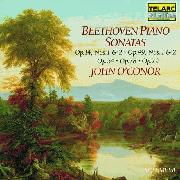 | Piano Sonata No. 10 in G major, Op. 14, No. 2
1799
|
 | Septet in E-flat major, Op. 20
1799
|
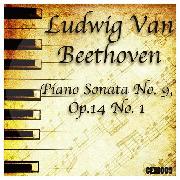 | Piano Sonata No. 9 in E major, Op. 14, No. 1
1799
|
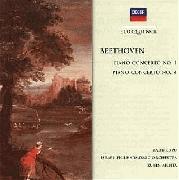 | Piano Concerto No. 1 in C major, Op. 15
1798
|
 | "Pathétique" Piano Sonata No. 8 in C minor, Op. 13
1798
|
 | Piano Sonata No. 7 in D major, Op. 10, No. 3
1798
|
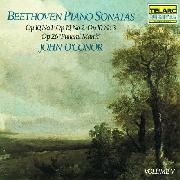 | Piano Sonata No. 6 in F major, Op. 10, No. 2
1798
|
 | Piano Sonata No. 5 in C minor, Op. 10, No. 1
1798
|
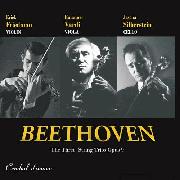 | Three String Trios, Op. 9
1798
|
 | String Trio No.2 in D major, Op.8
1797
|
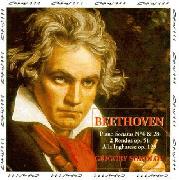 | "Grand" Piano Sonata No. 4 in E♭ major, Op. 7
1797
|
 | Piano Trio, Op. 11
1797
|
 | Quintet for Piano and Winds, Op. 16
1796
|
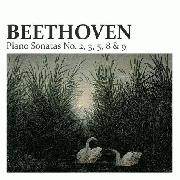 | Piano Sonata No. 3 in C major, Op. 2, No. 3
1795
|
 | Piano Sonata No. 2 in A major, Op. 2, No. 2
1795
|
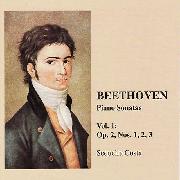 | Piano Sonata No. 1 in F minor, Op. 2, No. 1
1795
|
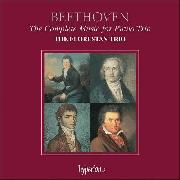 | Piano Trio No. 1-2-3, Op.1
1795
|
 | String Trio No. 1 in E♭ major Op. 3
1794
|
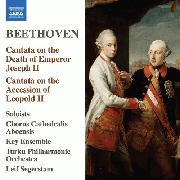 | Cantata on the Death of Emperor Joseph II, WoO 87
1790
|
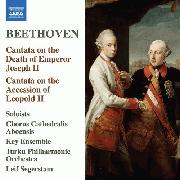 | WoO 88: Cantata - Accession of Emperor Leopold II
1790
|
| EPs | 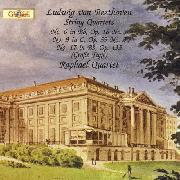 | Große Fuge, Op. 133
1825
|
 | Bagatelles, Op. 126
1825
|
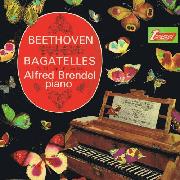 | Bagatelles, Op. 119
1823
|
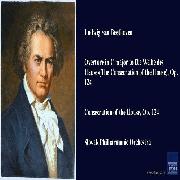 | Die Weihe des Hauses, Op.124
1822
|
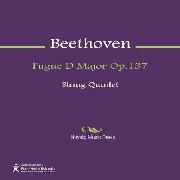 | Fugue for String Quintet in D major, Op. 137
1817
|
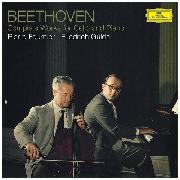 | Cello Sonata No. 4 in C major, Op. 102/1
1815
|
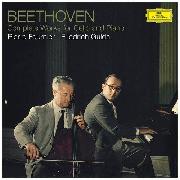 | Cello Sonata No. 5 in D major, Op. 102/2
1815
|
 | Wellington's Victory, Op. 91
1813
|
 | The Ruins of Athens
1811
|
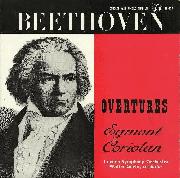 | Egmont, Op. 84
1810
|
 | Bagatelle No. 25 in A minor "Für Elise", WoO 59
1810
|
 | Fantasia in G minor, Op. 77
1809
|
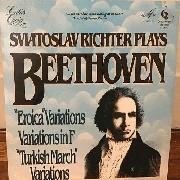 | Variations on the "Turkish March" Op. 76
1809
|
 | Choral Fantasy, Op. 80
1808
|
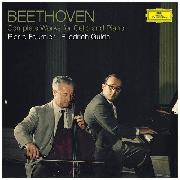 | Cello Sonata No. 3 in A Major, Op. 69
1808
|
 | Coriolan Overture, Op. 62
1807
|
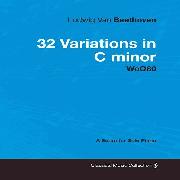 | 32 Variations in C Minor, WoO 80
1806
|
 | Leonore Overture No. 2, Op. 72a
1805
|
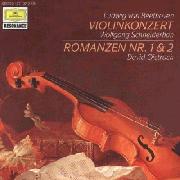 | Violin Romance No. 2 in F major, Op. 50
1805
|
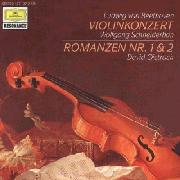 | Violin Romance No. 1 in G major, Op. 40
1803
|
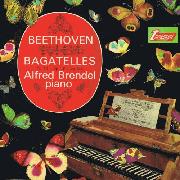 | Bagatelles, Op. 33
1803
|
 | 6 Variations on an Original Theme in F, Op.34
1802
|
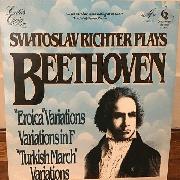 | Eroica Variations Op. 35
1802
|
 | Violin Sonata No. 4 in A minor, Op. 23
1801
|
 | Violin Sonata No.5 in F major, Op.24
1801
|
 | Violin Sonata No. 1 in D major, Op. 12, No. 1
1798
|
 | Violin Sonata No.2 A Major, Op.12, No.2
1798
|
 | Violin Sonata No. 3 in E♭ major, Op.12, 3
1798
|
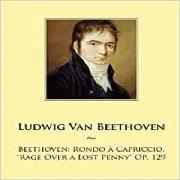 | Rage Over a Lost Penny in G Major, Op. 129
1798
|
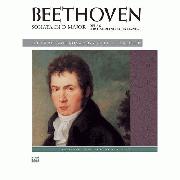 | Sonata for Piano, Four Hands in D major Op. 6
1797
|
 | WoO 43/44: Sonatina for mandolin and harpsichord
1796
|
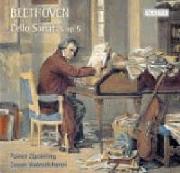 | Cello Sonatas Nos. 1 and 2, Op. 5
1796
|
 | Piano Sonata No. 19 in G Major, Op. 49
1796
|
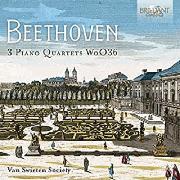 | Three piano quartets, WoO 36
1785
|
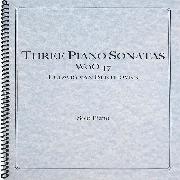 | Three Early Piano Sonatas, WoO 47,
1783
|
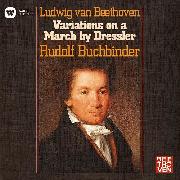 | Nine Variations on a March by Dressler, WoO 63
1782
|
|
| Compilations | 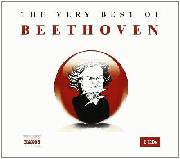 | Very Best of Beethoven
2005
|
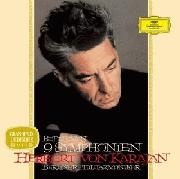 | Herbert von Karajan: The Nine Symphonies
1963
|
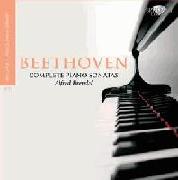 | Complete Piano Sonatas
1858
|
Contributors: FR33L0RD, Doctuses, Greem, flukemmviii, Zig, carparts, dariosoares, rockandmetaljunkie, taylormemer, Jozh, itachi1452, ninjuice, Sowing, Jom, arf, FabiusPictor202, SharkTooth, Doctuses, Zig, SandwichBubble, Greem, forkliftjones, gagnonov, Insurrection, Havey, taylormemer, TRMshadow,
|
